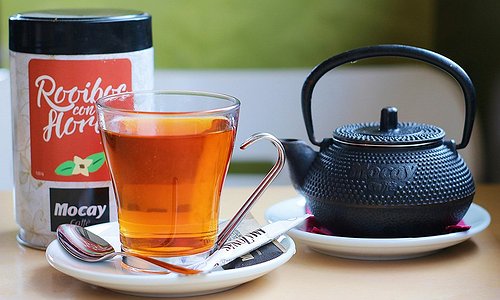Global warming leads to malaria increase
Nearly half of the world’s population is at risk of malaria. With mosquito-borne diseases increasing due to global warming, the World Health Organisation is focusing on prevention to reduce the death toll of a disease that continues to kill more than 400 000 people annually, with over 200 million reported malaria cases every year.
The Independent Community Pharmacy Association (ICPA) is advising travellers to take the following basic precautions against the disease.
1. Determine your risk level
Educate yourself about your destination and the risk of getting malaria.
With malaria areas speculated to spread in the future because of global warming, it is even more important to inform yourself before leaving for your destination,” warns Jackie Maimin, CEO of ICPA. “Your local community pharmacist has up-to-date information on malaria and malaria areas.”
2. Stay inside at night
Avoid being outside after dark or sleeping outside. In your accommodation keep your curtains and insect screens on your widows closed. If you are sleeping in a tent, make sure you keep the net screens closed and ensure there are no holes anywhere. Keep the room or tent door closed at all times.
3. Avoid stagnant water
Avoid camping in areas where there is stagnant water. Check for mosquitoes breeding in ponds or water lying in gutters or open rain tanks around your accommodation.
4. Always sleep under a mosquito-net impregnated with insecticide
Check that the net is not damaged and always ensure it is properly tucked underneath your mattress. Keep the air conditioning or fan on, as mosquitoes tend to stay out of cool, air-conditioned rooms.
5. Use mosquito repellents
Insect repellents should be applied to any remaining exposed parts of the skin, especially in the evening and during the night. It is advisable to apply the repellent during the daytime as well.
Maimin advises that repellents should contain DEET or picaridin, the most effective active ingredients. “They are widely used to repel biting pests such as mosquitoes and ticks and products containing DEET are available to the public in a variety of liquids, lotions, sprays, and impregnated materials which are designed for direct application to people’s skin. Rather than killing mosquito’s, DEET works by making it hard for these biting bugs to smell us.”
“Pregnant women, babies and small children should avoid entering a malaria area, however, if it is unavoidable then babies should be kept under mosquito nets as much as possible. DEET containing products can be applied on babies sparingly once a day from two months onwards but should not be applied to infants under two months. The use of DEET is safe in pregnancy. Given the seriousness of malaria in pregnancy, it is recommended to use DEET at a concentration of 50% as part of the malaria prevention regime.”
“Plug-in mosquito repellent units also work well however they may irritate people who are asthmatic or have allergies and should be used with care around pets.”
6. Go for long sleeves
Wear light coloured, long sleeve shirts and trousers in the evening and at night with socks to protect your ankles. The less skin that is exposed, the better. Additionally, you can treat your clothes with permethrin in order to increase your protection.
7. Sunscreen comes first – repellent second
If you are using sunscreen, it should be applied first and the insect repellent second. The repellent will not work if you cover it with a thick layer of sunscreen. Alternatively, use a sunscreen that contains a repellent.
8. Take antimalarial medication
Ask your local community pharmacist about the risk of acquiring malaria in the area you plan on visiting. The risk is determined by a number of factors including the malaria transmission in the area and season of visit, as well as the length of stay, type of accommodation, and likely activities between dusk and dawn.
The choice of malaria preventing medication is determined by local antimalarial drug resistance patterns, patient factors including, chronic illnesses, current medication, planned activities and duration of stay. There are malaria preventative medicines available as pharmacist advised therapy. Your pharmacist will be able to advise whether these would be suitable or whether you need to visit your doctor. Depending on the medication you use, you may need to start taking the medication one week prior to entering the malaria risk area.
9. Follow your prescription carefully
Do not forget to take the anti-malarial medication exactly as prescribed and do not stop taking it too early after your return. Most medications have to be continued for four weeks after you leave the malaria-affected area.
10. Be on the safe side
Patients should be made aware that malaria should be urgently excluded with ANY febrile illness occurring within one week to three months after visiting a malaria area, regardless of whether or not chemoprophylaxis was taken, or mosquitoes were seen. Early effective treatment is essential to prevent progression to potentially fatal severe malaria.
“Even if you have done everything right, there always remains a small risk of contracting malaria. Chat to your local community pharmacist if you are planning a trip to a malaria area – it is far better to be safe than sorry,” concludes Maimin.
Submitted by: Independent Community Pharmacy Association (ICPA)
Main Image URL



